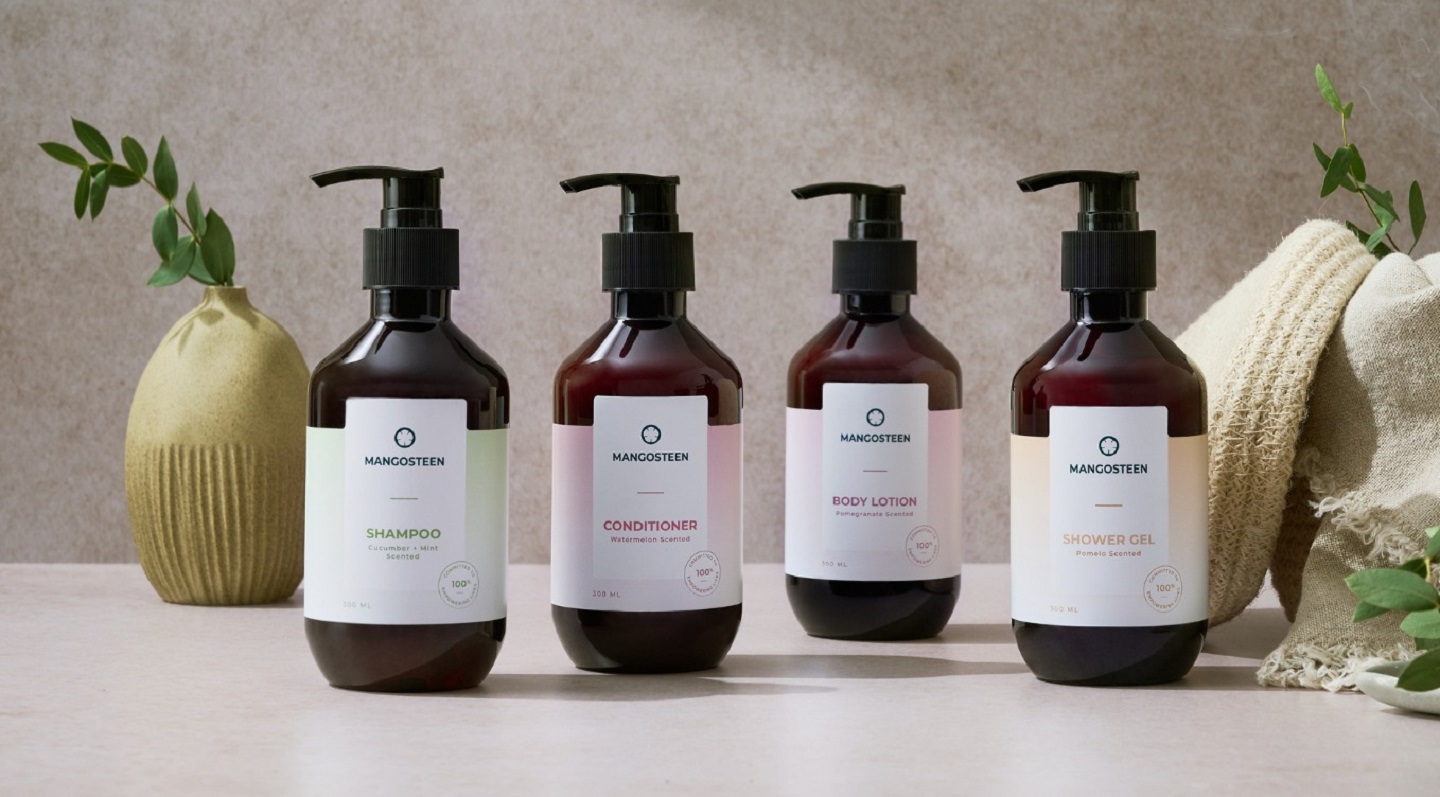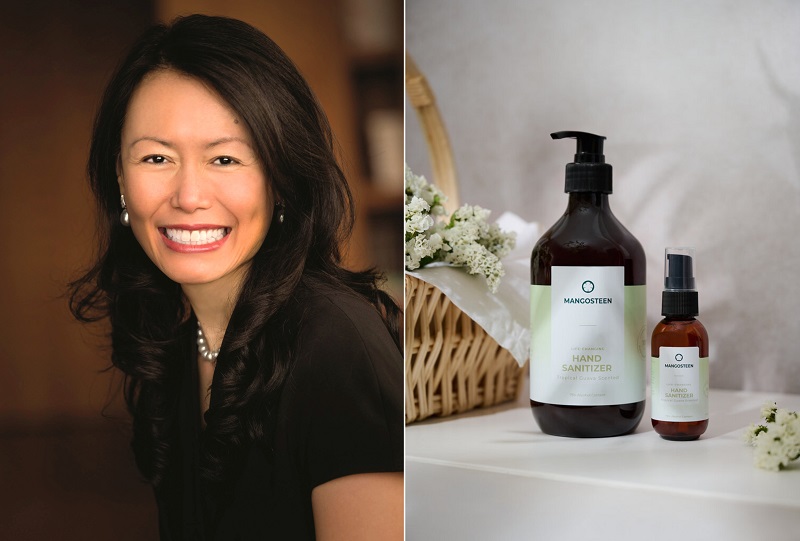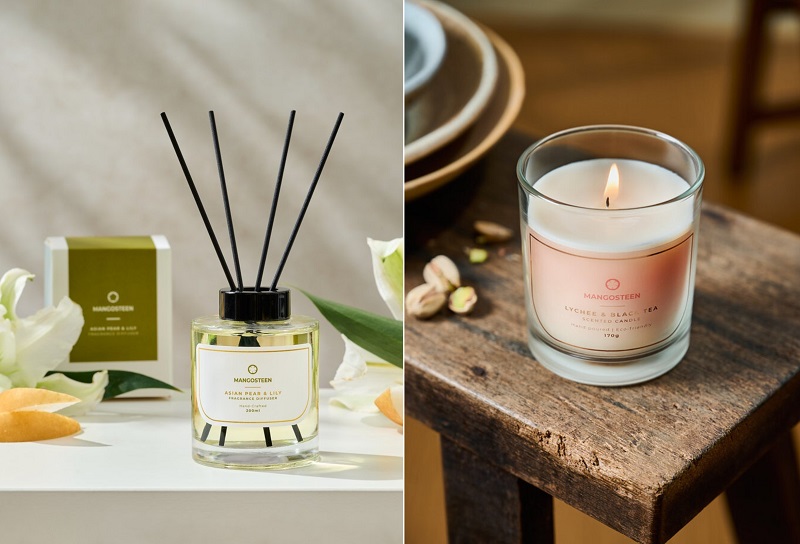
Mangosteen's first range, Tropics, features a a variety of hair and body care products (All photos: Mangosteen)
Lawyer Datuk Kathleen Chew, who is also group legal counsel for YTL Corporation, has been actively involved in fundraising events for non-profit organisations. “Every year, we ask people to make donations. It just occurred to me, there must be a better way of doing this than continuously organising dinner after dinner. So I thought, what if I started a business?”
While looking for inspiration, Chew turned to her interest in body care brands such as L’Occitane and Aesop. “Many years ago, I was introduced to L’Occitane by my friend in Paris. Then, Aesop — an Australian brand — opened its first store in Kuala Lumpur and I really loved their products. While I was trying these brands, I was thinking, why haven’t Malaysia or Southeast Asian countries had a brand that makes products infused with tropical extracts to represent our region?
“We always see skin or body products made of strawberry and lavender but rarely do we get a glimpse of those formulated from limau purut (kaffir lime), calamansi or pineapple extracts,” she explains.
Seeing the gap in the market, Chew was really keen to explore what she could do with tropical fruits and plants that were more familiar to locals. Her personal care brand, Mangosteen, was born in 2013 with the aim of promoting the scents of Southeast Asia while also giving back to the community.
mangosteen_1.jpg

The Mangosteen trademark is very specific as well because the Queen of Fruits is Chew’s personal favourite. “A lot of people in the West don’t know the mangosteen but it is my favourite fruit and I really want more people to know about it. I think the structure of mangosteen also fits the message we carry. The fruit looks rough on the outside but when you open it, you get this perfectly bright white flesh that looks clean and smooth. You can’t always judge something from the outside.”
The brand operated as a B2B (business-to-business) company at first and supplied products to partners who were revamping their hotel amenities. “Most of these hotels are located in the outskirts and it would be more appropriate to have tropical scents in their resorts. So I told them, ‘Why don’t I try to develop something for you?’”
Mangosteen welcomed its first range, Tropics, and its earliest product was the Pomelo shower gel. Next came Pomegranate body lotion, Cucumber and Mint shampoo as well as Watermelon conditioner.
Since Mangosteen consists of a team of just four, it is not possible for them to run their own lab. “We work with manufacturers from Australia and give them the specifications and requirements that we want for our products. Our goods are responsibly made and we also try to reduce the amount of single-use plastics for packaging.”
mangosteen_home.jpg

A few years after its establishment, the brand thought about expanding its market, selling directly to consumers. This was followed by feedback received from hotel guests who found the personal care items desirable. Looking at the demand, Mangosteen planned a new collection, From Skin to Soul, that was scheduled to be launched in 2020. However, the pandemic happened and the launch was postponed to last year.
Besides hair and body care items, Mangosteen extends its fascination with scents to home products such as candles, diffusers and sanitisers. Driven by the pandemic, the Tropical Guava cleansing gel is its best-selling product as customers are attracted to the appealing smell, which is different from the medicinal scented sanitisers they usually get from pharmacies.
Chew notices that the pandemic has altered the way companies operate and how consumers shop. “As with a lot of businesses, we’ve had to explore this new way of doing things. We have a showroom at Kuala Lumpur Performing Arts Centre (klpac) but most of our sales are online. While the pandemic has slowed us down in some way, I suppose the good thing about it is that people have been willing to take some risks with us because they don’t go out as well. They buy our products despite not being able to try them beforehand.”
She believes this is partly due to the brand’s social mission where it maximises its profit to support organisations such as the Women’s Aid Organisation, The Asli Co. and Dignity for Children Foundation. “I think that resonates with people these days because they know they are not just taking care of themselves with these products, but also looking out for other people who need help.”
Chew wishes for Mangosteen to be the brand people think of when they talk about Asian personal care brands, while continuing to give voice to women and children through its social mission.
She says she is especially interested in helping women and children because “research shows that every dollar you invest in a mother or a woman, she invests it in her children. She makes sure they have food on the table and go to school. I just feel that if we invest in these women, they are going to be able to give the next generation a chance to come out of this cycle of poverty. If we want to help our community, I think that’s where we should start”.
This article first appeared on Mar 7, 2022 in The Edge Malaysia.


